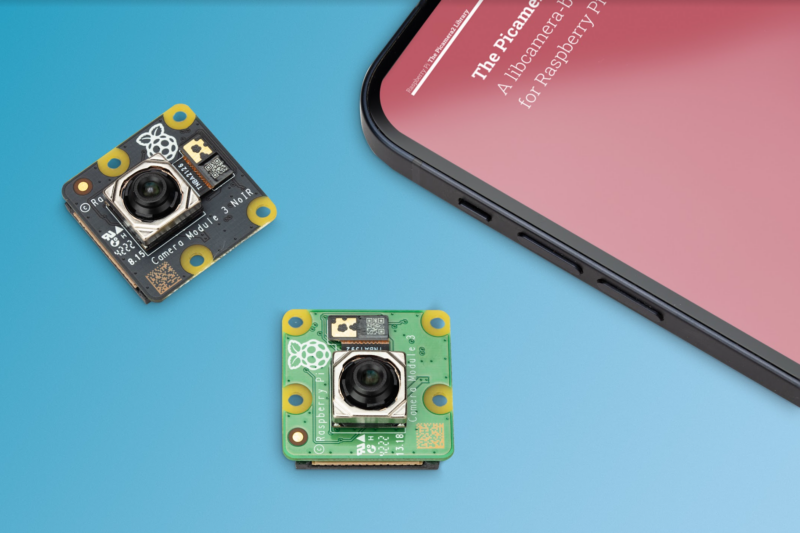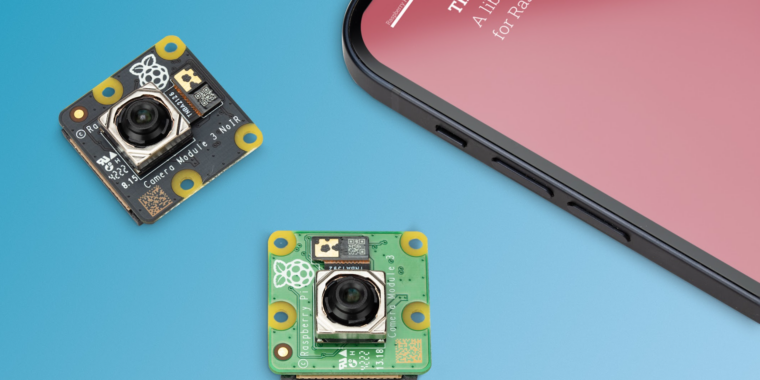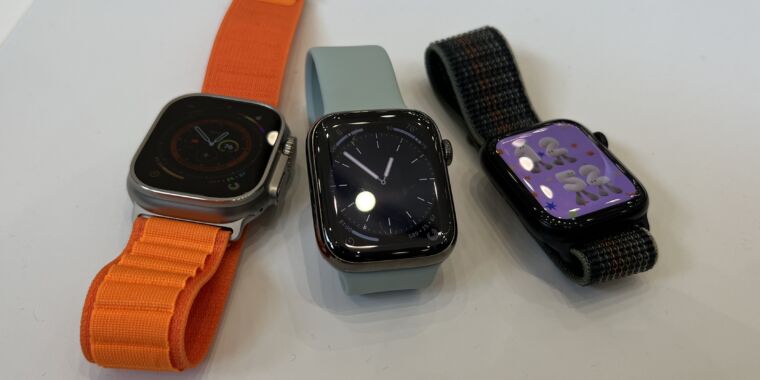
Raspberry Pi
Raspberry Pis will soon have many more camera-based projects available to them, as the newest Camera Module from the single-board computer maker allows for autofocus, high dynamic range, lower-light photos, and more.
The Camera Module 3, starting at $25, lets you take “crisp images of objects from around 5cm out to infinity,” Raspberry Pi CEO Eben Upton wrote in a blog post announcement. Standard field-of-view (FoV) camera modules cost $25, while wider-FoV models are $35 for the “more complex and expensive optical stack.”
The sensor comes from Sony and uses a back-illuminated IMX708 that provides a 12-megapixel resolution, larger (1.40μm) pixels, and support for HDR. Among other improvements from the Camera Module 2 released in 2016, this model allows for finer image details, 16:9 HD video, and better low-light sensitivity. The standard models capture a 66-degree field of view, similar to the previous module’s 62. The wide-FoV models capture 102 degrees at a slightly lower angular resolution but allow for new uses, including digital panning.
-
A standard-FoV shot of Ely, Cambridgeshire, taken with the Camera Module 3.
Raspberry Pi -
A wide-FoV shot of the same scene, taken using the wide-view model of the Camera Module 3.
Raspberry Pi
But autofocus is the truly big improvement in the Camera Module 3. The lens assembly has been mounted on a voice-coil actuator, and autofocus relies on either the sensor’s detection or the Pi’s algorithm. Raspberry Pi showed off the autofocus features in a video demonstration.
Demonstration of the Raspberry Pi Camera Module 3’s powered autofocus capabilities.
In addition to a new small-lens module, Raspberry Pi also launched a new variant of its $50 High Quality Camera mounting system, which lets users attach high-quality standard lenses to the Pi. The 2020 version allows for C/CS-mount lenses, while the new option allows for M12.
There’s more to read about the Camera Module 3, including its HDR prowess, in Pi’s blog post. The module works with any Pi model with a CSI connector, minus the Raspberry Pi 400 and the launch version of the Pi Zero. It’s supported by the modern, open source libcamera and Picamera2 beta libraries, not the older closed source version of libcamera. And if you don’t have a Raspberry Pi available for a camera project, there should be more (of some models) coming soon.
Listing image by Raspberry Pi








